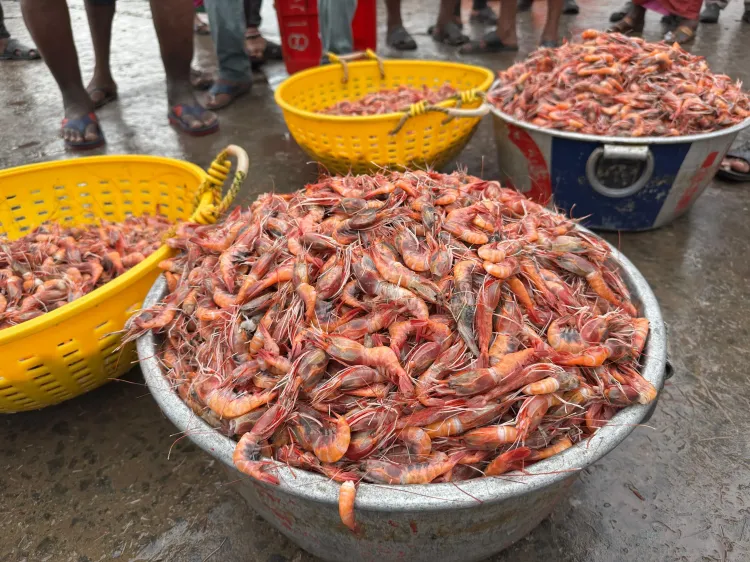Is India on the Brink of Global Certification for 10 Fish Species?

Synopsis
Key Takeaways
- India is pursuing MSC certification for 10 fish species.
- Certification could boost export prices by up to 30%.
- Collaboration with national research institutions is key.
- Eco-labels enhance consumer trust and market access.
- Sustainability is crucial for the future of fisheries.
New Delhi/Kochi, Sep 26 (NationPress) India is making significant progress toward obtaining global Marine Stewardship Council (MSC) certification for 10 of its marine fish species, a move anticipated to enhance exports through premium pricing and improved market access.
The nation plans to submit an application for full certification of its first species by 2026.
During a technical session at World Food India, organized by the Marine Stewardship Council (MSC), the Sustainable Seafood Network India (SSNI), and the Seafood Exporters Association of India (SEAI), experts indicated that crucial technical requirements, such as stock assessments for shrimps, squid, cuttlefish, and octopus, are approaching completion.
Dr. Ranjit Suseelan from MSC India stated, "The prioritized fish species are in advanced stages of assessment, raising expectations for MSC certification within the next year."
According to MSC data, globally, MSC-certified seafood products can command a price premium of up to 30 percent.
This development could significantly boost India's competitiveness in export markets, where eco-labels and sustainability certifications are increasingly critical for consumer acceptance.
The certification process is being backed by national research institutions, such as the Central Marine Fisheries Research Institute (CMFRI) and the Central Institute of Fisheries Technology (CIFT), along with industry organizations like the SEAI.
The Union Department of Fisheries has revealed plans to allocate dedicated funds under the upcoming PMSSY 2.0 scheme to support certification and traceability.
Dr. Nilesh Pawar, an official in the department, remarked, "The Department is actively considering financial allocations for research, assessment, and documentation necessary for certification."
CMFRI Director D. Grinson George emphasized the institute's role, stating, "This will guarantee that fisheries resources are assessed and managed in accordance with global standards."
Exporters pointed out that certification could help Indian seafood navigate tariff and trade barriers in markets like the US, where strict sustainability requirements are prevalent.
Abraham Tharakan of the SEAI noted, "Eco-labels and sustainability certifications bolster consumer confidence and enhance India's bargaining power."
Michael Marriott, MSC Programme Director, highlighted the pressing need for sustainable management, revealing that 37.7 percent of global fish stocks are overfished, a threefold increase since 1974.
"Fisheries certified to the MSC standard are consistently more abundant and better managed," he stated. Industry leaders also emphasized that certification would not only amplify export potential but also support small-scale fishers by ensuring long-term sustainability and fairer market opportunities.









